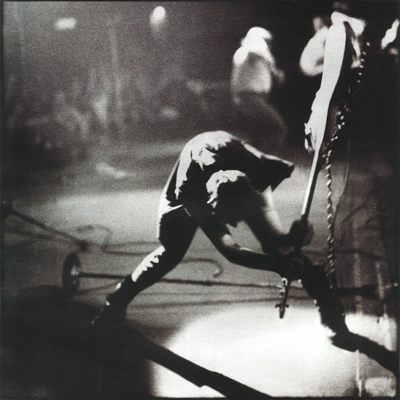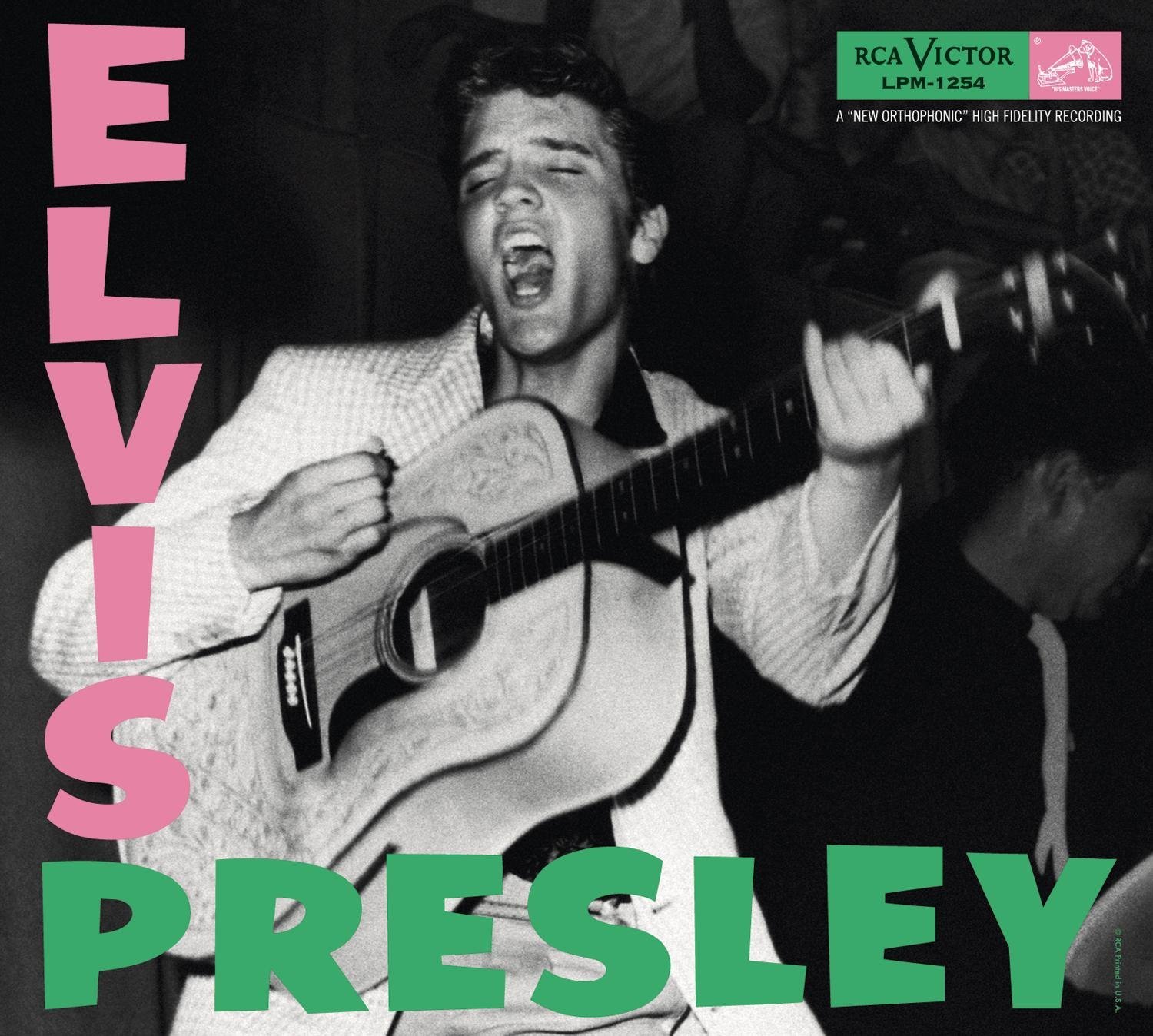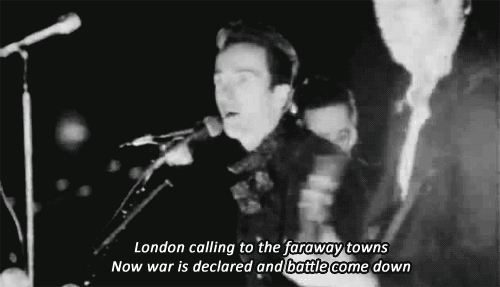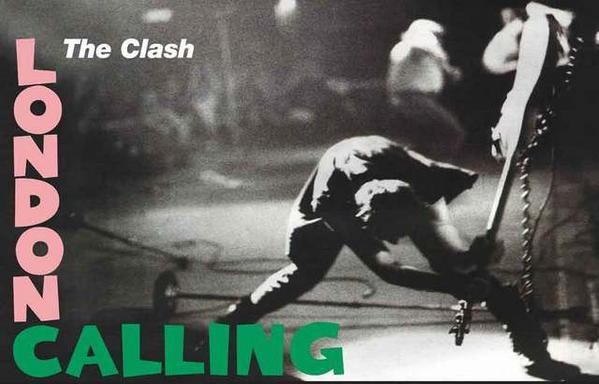Greetings groovers and welcome back to Music Feeds’ bi-monthly record club where we kick back with a glass of vino and go deep with the classic cuts no long-playing lover should be without. And boy-yo do we have a doozy of a record to yarn about today.
Fans are still divided on London Calling. For some, it’s an album which sees The Clash reinventing punk while, for others, it’s where they transcend it. A shot of revolutionary optimism at a dark moment, it catapulted the group to international fame. Documenting chaotic times, not unlike our own, it’s loaded with a rebel spirit and armed with an idealistic message of hope.
Background: Death or Glory?
The Clash’s self-titled debut was a definitive punk record. Yet truth be told, few outside of the UK would have ever heard it if it hadn’t been for the later success of London Calling. The Clash may have been punk politicos, but they were also an ambitious lot. With a defiant musical statement of social change and outlaw swagger to deliver to the world, they set their sights on the US of A.
Radio-friendly second album Give ‘Em Enough Rope didn’t exactly live up to expectations. Recorded with Blue Oyster Cult producer Sandy Pearlman in 1978, it had failed to win mainstream success. To add to the pain of things, debts racked up from gruelling international touring placed the band in dire financial straits.
The group plummeted to an emotional low. In debt and adrift, they were constantly at war with label CBS. They also parted ways with their manager and, arguably, manipulative mentor Bernard Rhodes after a heated legal dispute.
Could things get any worse? Er, well yes! Punk rock had delivered a short, sharp shock to the system but by ’79 the entire UK movement was petering out. The Sex Pistols had imploded in ’78 and most year zero contemporaries were more content with playing Top Of The Pops than inciting change. A second crop of acts had sprung up with cliched ideas of what punk should be. They were little more than caricatures of the energy, excitement and originality of punk’s initial explosion.
With their backs against the wall, The Clash enter what is arguably their most fertile creative period. From May to August 1979 they retreat from public view. Cloistered in their Pimlico rehearsal space they reach a powerful but simple realisation: Punk was about empowerment, individuality and freedom. It was about doing anything you wanted. So they did exactly that. Flipping the forks to expectation they played the music that mattered to them.

Global touring may not have won fame or fortune for The Clash, but these journeys had turned them on to new musical genres, cultures, philosophies and ideas. Accepting no boundaries, they pushed forward with total conviction. Visually and sonically they evolved. Slicked back hair and flashy spiv attire replaced the torn clichés of punk.
In three and a half weeks they cut an album with producer Guy Stevens. The group put in 18-hour days breaking only for beers and daily games of football. They refine an ambitious sound, burning with righteousness yet underscored by personal warmth. It drops in the UK in December 1979.
Awards/Records
The Clash weren’t in it for the acclaim, but the journey itself. Okay, they may have strayed from this ethos a little at times, but fundamentally they believed in their cause. London Calling was the massive commercial success they had been pushing for. It shot to number 9 in the UK album charts.
For Americans, it was a wake-up call on a massive scale. The Clash had finally brought their message to the masses. The album cracked the nation’s charts, peaking at number 27. Clashrock dominated the airwaves.
If industry accolades are your thing there’s plenty of kudos for the Clash masterwork. It was immediately a critics favourite, London continues to crop up in “Greatest Albums of All Time” lists. Rolling Stone ranked it at number 8 in 2007 and it’s also been immortalised via induction into the Grammy Hall of Fame.
Their 1982 record Combat Rock may have trumped London in terms of sales, but the group’s third album was a revelation. Not only did it embrace the feeling of its times, it thrashed forth a music which remains vital and a message which still rings true. Following its success, The Clash would become masters of reinvention before meeting a turbulent demise in 1983. London Calling showed every would-be musician that punk was attitude rather than a style. Any two mad geezers in a room could change the world.
Fun Fact
Their producer was a complete and utter head case. Talking to Record Collector in ’04, bassist Paul Simonon cased their choice in these simple terms, “…we wanted a nut case to produce the band.” A nut case he was. An eccentric DJ, producer and music scenester, Guy Stevens ran on alcohol and amphetamines. His antics as a recordist and appetite for mayhem were legendary. In the studio he would attack musicians when disappointed with their work, blow up a television, pour red wine in Joe Strummer’s grand piano and frequently hurl furniture about the place. Yet the choice paid off. Chasing mood, emotion and a live feel, Stevens brought forward the best in the group’s sound.
Also, the album’s iconic cover depicts a blurred Paul Simonon a split second before he bashes his Fender bass to oblivion. It was captured shortly before the album’s release at New York’s Palladium on September 20, 1979. In the two seconds between the guitar being raised and hitting the floor, it embodies the drama, energy and impetus of punk.

Key Tracks
‘London Calling’ is both a clarion call and keynote address. The opener immediately strikes a tone that carries throughout the album. Instruments strike in unison as cryptic lyrics forebode the ending of all things. But amidst the gloom and imminent collapse, Strummer makes a defiant stand. The flood is rising and you, the listener, are with him on the water’s edge. He has no fear and neither should you.
‘Rudie Can’t Fail’ is instantly catchy. This anthemic number sees Mick Jones takes on vocal duties as Strummer eggs him on. Rudie is the never-do-well in all of us, a slacker and hero. As glasses chink in the background, there’s a sense of camaraderie between the bandmates which leaks outward and into the soul.
‘Train in Vain’ is the single which broke the group in the US. Written at the tail end of the recording sessions, its addition was so late coming that it wasn’t even included on official track listings. It sounds more like funkified John Cougar-Mellencamp than a true Clashrocker but showcases just how versatile and spontaneous the group could be.
Legacy
Those who claim a musical debt to The Clash are legion. London Calling sent ripples through the musical community, it even catalysed contemporaries U2, Bruce Springsteen and The Jam. Like The Velvet Underground and the Ramones, the record provided the lightning bolts of inspiration that started generations of bands.
It’s A Message of Hope
We’re well within our rights to complain about Trump and global warming, but 1979 was an equally turbulent time. The Cold War was still in full swing. In the space of a year The Clash had witnessed a radioactive disaster at Three Mile Island, a revolution in Nicaragua, the discovery of Cambodia’s killing fields, Saddam Hussein becoming president of Iraq, mass unemployment, escalating IRA bombings and multiple crackdowns from a repressive Thatcher government. The world was going to the dogs and hope was in short supply.
The Clash were defined by their righteous and persistent humanism. Politics were personal. Never allying to a single party or cause, they sang about what mattered to them as a group of everyday people looking to do what was right. Their music carried the message that even at the edge of oblivion humanity can persevere.
It’s Their Stoner Album
By 1979 The Clash were viewed as virtuous superheroes of punk. Yet their rise to fame had left them reclusive and a little paranoid. You may argue it was a reaction to the pressures they had faced and bleak state of current affairs, but then again you might equally put it down to the amount of pot which was being smoked. From this headspace leapt hair brained and innovative compositions. Pulling together a dazzling array of musical styles, the expansion of the group’s musical horizons crept into the worlds of rockabilly, R&B, jazz and ska.
It’s Their Reggae Album
These herbal proclivities also tied to a deep passion for reggae. The Clash had always incorporated elements of ska into their signature sound, but as punk floundered they came to see the reggae’s artists as shining examples of individuals setting political statements to song. By ’79 their consumption escalated.
Its influence is everywhere. The foreboding atmospherics of title track ‘London Calling’ comes in part from its inverted Trenchtown rhythm. Never does the group sit as comfortably into a reggae groove as on ‘Guns of Brixton’. Influence also surfaces strongly on ‘Revolution Rock’, ‘Wrong ‘Em Boyo’, Hateful’, ‘Jimmy Jazz’, Death of Glory’, ‘Clampdown’ and ‘Lover’s Rock’.
Somehow, It’s Also A Classic Rock’n’Roll Album
London Calling taps into an American sense of rebellion which sits at the root of rock’n’roll. Winding back the clock, the album explores the sound of the US rockers who ruled the airwaves prior to the British Invasion. Many contend that punk was simply rock music cutting the bloat and returning rock to its raw rockabilly form. The Clash were bringing punk full circle.
Within their song titles and lyrics, The Clash invoke the names of scoundrels and anti-heroes. They make a nod to Hollywood anti-hero Robert Mitchum as well as the forebear of gangster bravado Stagger Lee. They even included a supercharged cover of Vince Taylor’s ‘Brand New Cadillac’ as the album’s second track. To top things off, London’s cover throws back to this golden era with green and pink lettering coyly mimicking Elvis Presley’s own debut.

Why Own It On Vinyl?
It’s a double album and plays well. The intensity of the band’s passion is second to none. The Clash’s monumental album is one of those all-time greats. It observes and absorbs everything that went on around it, exemplifying its times but continues to take on new meaning as the years march by. Within its vinyl grooves comes the sound and emotion of The Clash going through their own personal hell, defiant and upbeat. It projects an unwavering faith that music can be a force of change, something which conquers dread and whatever darkness you may find yourself within. It’s music that pulls you out the other side.

Thankfully, you can pick it up right here.
Best Enjoyed With…
A) A sense of hope that troubling times can be overcome and that, above all, it’s individuals that matter.
B) A room full of your absolute best friends and a great PA.
C) Liberal slices of the band’s punk debut The Clash with a side of 1982’s Combat Rock.

Browse the full Viva La Vinyl catalogue and start beefing up your own collection right here.












